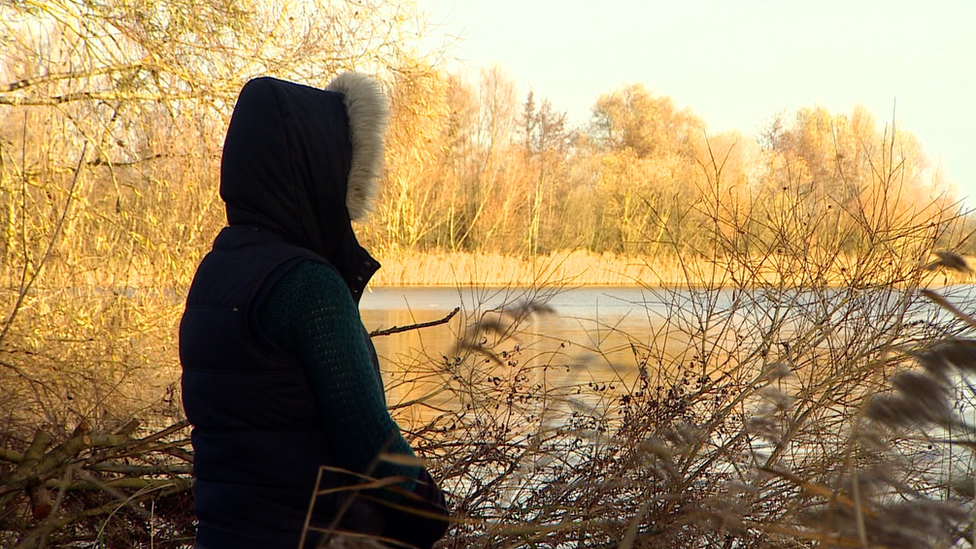Barrister strike: Criminal law is not dying, it's dead, says barrister
- Published
"Justice is for everyone - it’s not just for the rich and that is why we’re on strike," says junior barrister Tabitha Walker
Criminal law is "not dying, it's pretty much dead" one barrister has claimed.
Long hours and stagnant pay has caused barristers in England and Wales to begin indefinite strike action over a pay dispute, according to Nik Strobl.
Justice Minister Sarah Dines said strikes are "irresponsible" and will delay justice for victims.
Mr Strobl, 35, a criminal barrister since 2017, said the profession will "collapse" if issues are not rectified.
Mr Strobl practices criminal law at Apex Chambers in Cardiff and said he has seen a "drainage" of people leaving the criminal bar because of the pay and unsociable hours.
"You've got to be slightly mad to say, if you've got the top qualifications, 'I'm going to earn half the money, but have twice the workload'," he said.
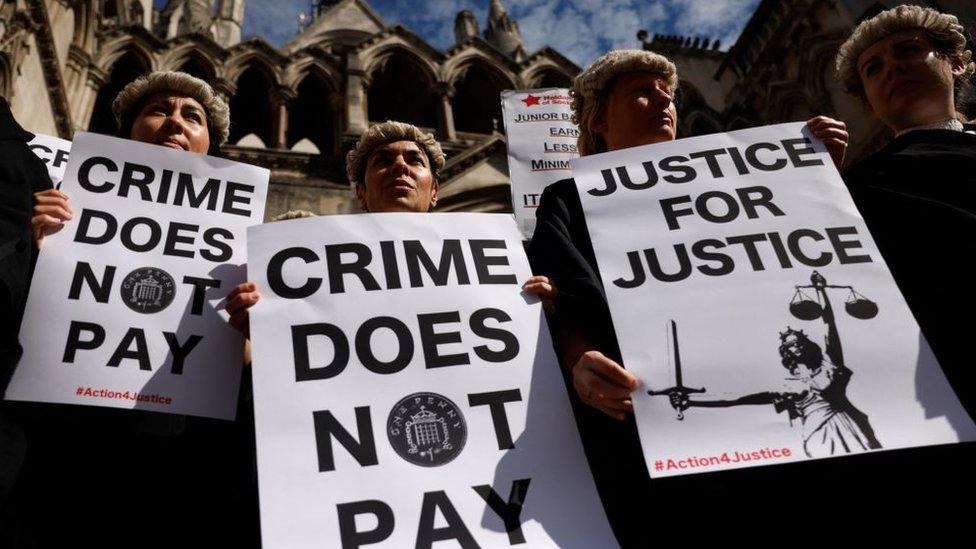
Barristers in England and Wales have begun an indefinite, uninterrupted strike after holding intermittent walkouts since the end of June

Why are barristers striking?
The Criminal Bar Association (CBA) wants a 25% rise in legal aid fees for representing defendants who could not otherwise afford lawyers.
CBA chair Kirsty Brimelow said this is an attempt to "hold up the criminal justice system from complete collapse".
The government has offered a 15% rise from the end of September, which the CBA rejected, saying it would not kick in soon enough or apply to existing cases.
After intermittent walkouts by CBA members since the start of June, an all-out strike formally began on Monday.

Mr Strobl said during the five years he has been practising law he only knows of one other barrister outside of his chambers who had decided to go into criminal law.
"They they sit down and look at the workload and go, why would I do this if I can go into family [law] and earn twice as much, or civil [law] and earn three times as much," he said.
"I've had many pupils… they're all getting told at the law schools 'do not do crime'."
"And this is where the real issue is, I'd say the criminal bar it's not dying, It's pretty much dead at the moment."

Nik Strobl says he believes unsociable hours and low wages are driving people away from criminal law
He said he believes that it is not just pay that needs to be raised, but improvements to work life balance, with many barristers not knowing their cases for the next day until 17:30.
"Suddenly you've got a trial for the next day... so you're potentially reading up on a whole new case."
"It makes organising any life, whether that's social, dinner with a partner or time around the children, very difficult."
'Chaotic, unsustainable'
Martha Smith-Higgins, 26, from Cwmbran, Torfaen, is also a criminal barrister at Apex Chambers in Cardiff.
Despite the strike, she said she is still prepping cases, unpaid, until the early hours of the morning.
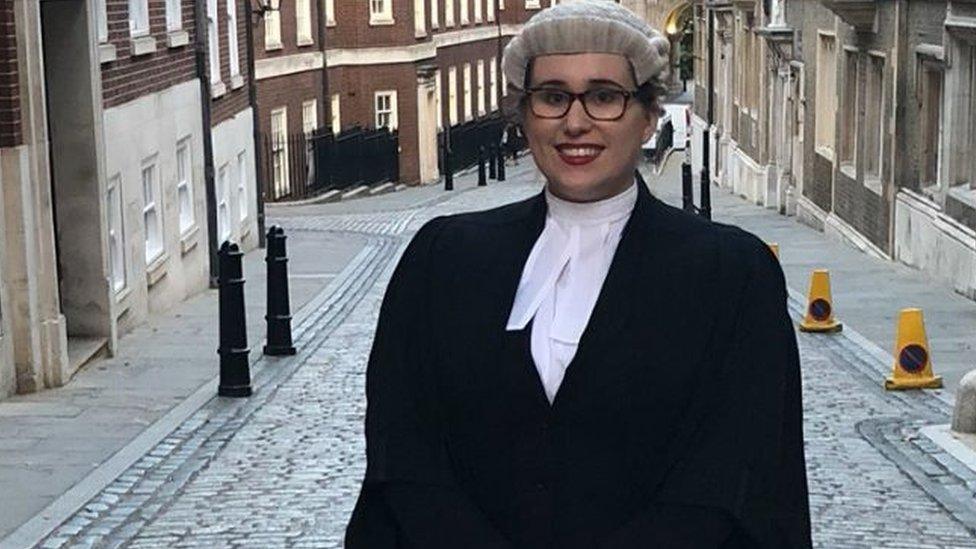
Martha Smith-Higgins says she "loves her job" as a criminal barrister, but believes it is "not sustainable" without change
"Tonight I will work now to about two o'clock, and then get some sleep before being up at six to start all over again," said Ms Smith-Higgins.
"Only if this hearing reaches a trial, and I am fortunate enough to be free to do the trial, then I'll get paid.
"In one word, it's chaotic, it's not sustainable," she said.
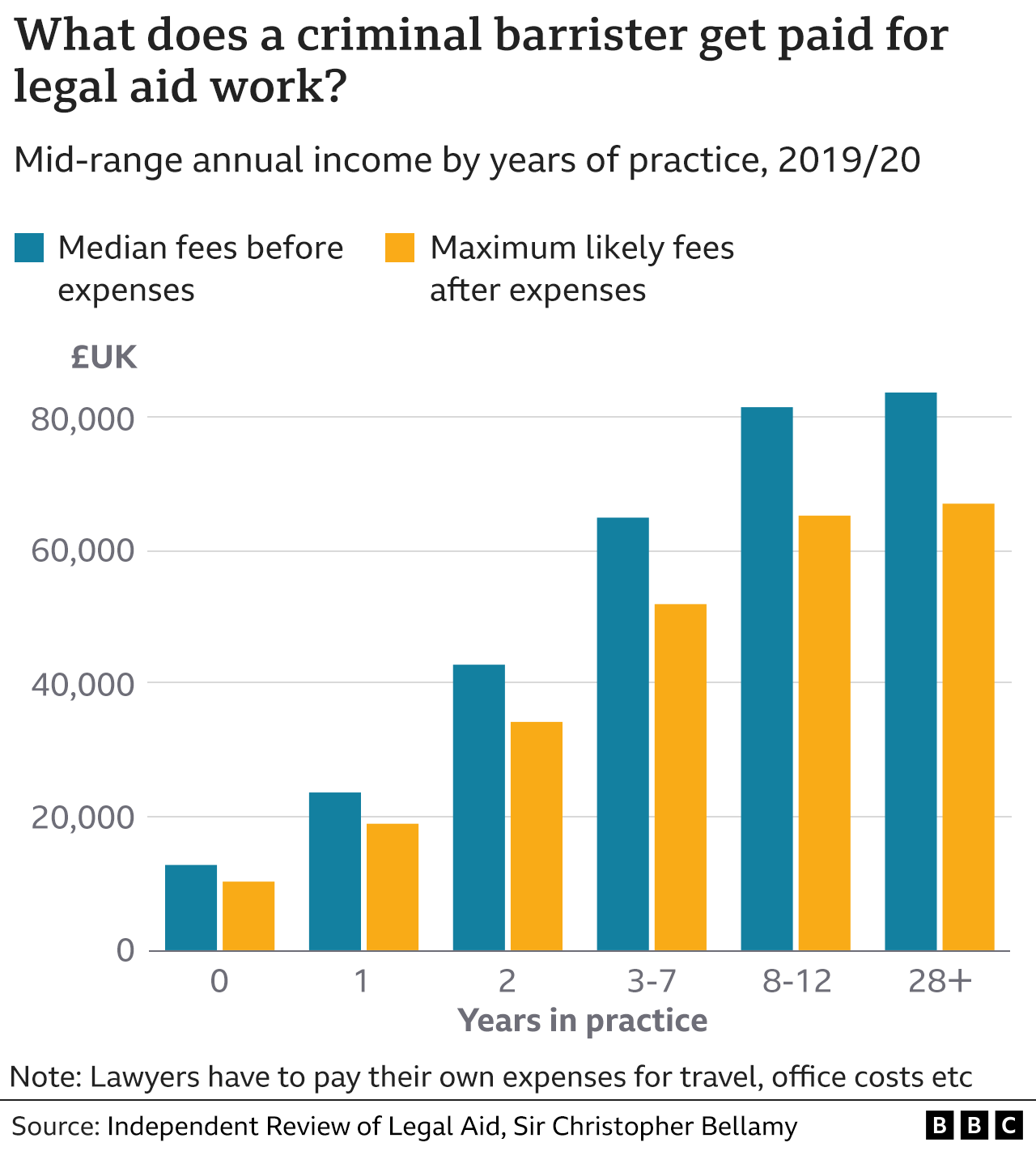
Ms Smith-Higgins said she regularly gives talks to law students, at the most frequently asked question "by far" is "Is the pay really that bad?".
"The brightest aspiring barristers are put off from joining us," she said, adding: "In reality, the damage has already been done."
"If you fast forward a couple of years... we're not going to have barristers prosecuting and defending, and we're not going to have judges."
She added that she wants a pay review body set up for barristers to ensure strike action is never again necessary.
'A perfect storm'
Laura Shepherd, 30, became a barrister in 2017, and despite initially working on civil and criminal cases, she has since left criminal law behind.
"There's just absolutely no incentive to stay in crime anymore," she said.
"There are three things just make a perfect storm; not a lot of money, lots of vicarious trauma and terrible work life balance."
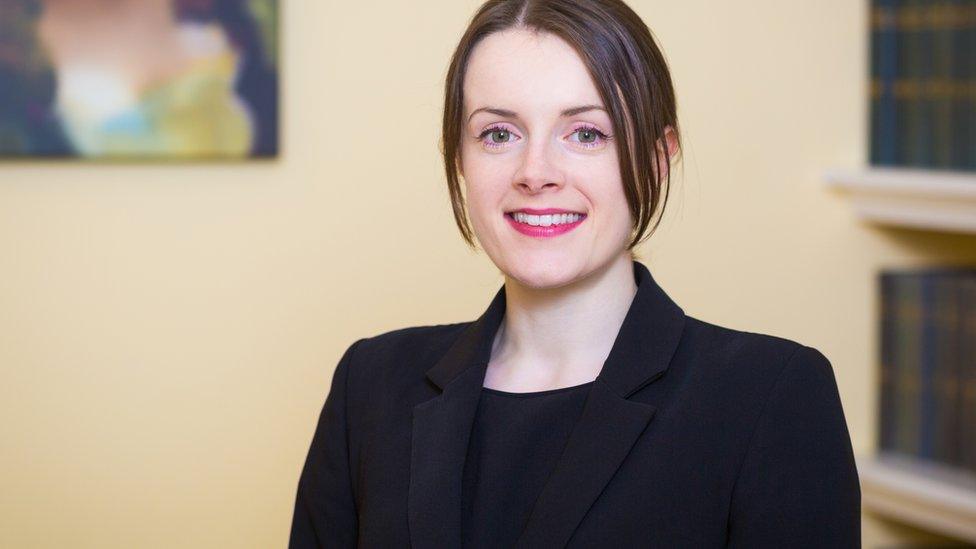
Laura Shepherd says barristers who do not tcome from wealth are being forced to turn away from criminal law
"There's a mental toll to working in crime, you have some pretty awful cases, and if you want counselling you have to get that yourself.
"And the toll on your personal life is awful in crime, by the nature of jury trials you can never predict when they will end."
Ms Shepherd said there is added stress in criminal law because the justice system itself is "crumbling", with barrister pay being only one of a number of issues.
"There's a problem at every level, but you can obviously only strike for your own profession," she said.
"People that aren't from a background of wealth are being forced to turn away from criminal law, so there's a self-selection process going on.
"You're not getting the best people."
'Irresponsible' strikes
In a statement, Justice Minister Sarah Dines said: "This is an irresponsible decision that will only see more victims face further delays and distress.
"The escalation of strike action is wholly unjustified considering we are increasing criminal barristers' fees by 15 per cent, which will see the typical barrister earn around £7,000 more a year."

SHORT FILMS FROM WALES: Made by up-and-coming Welsh film-makers

- Published5 September 2022
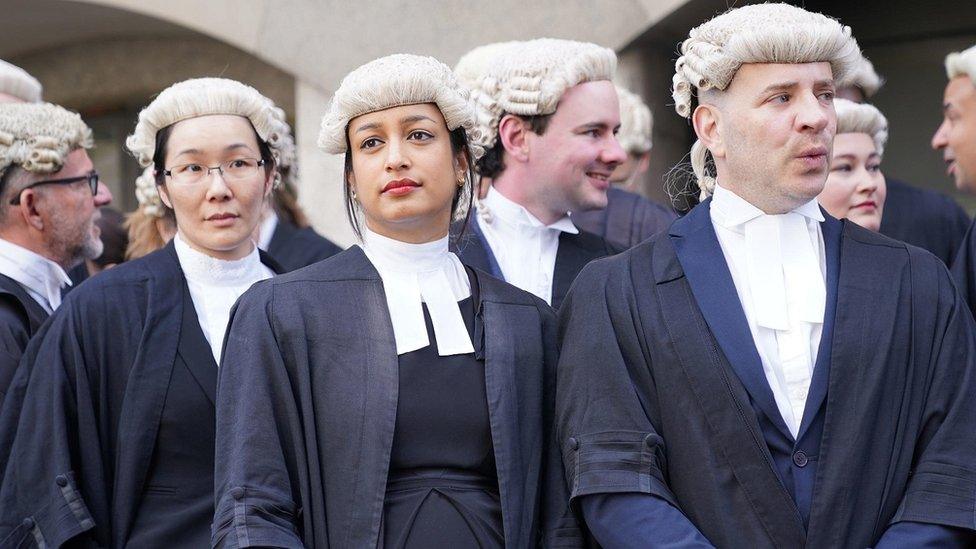
- Published5 September 2022
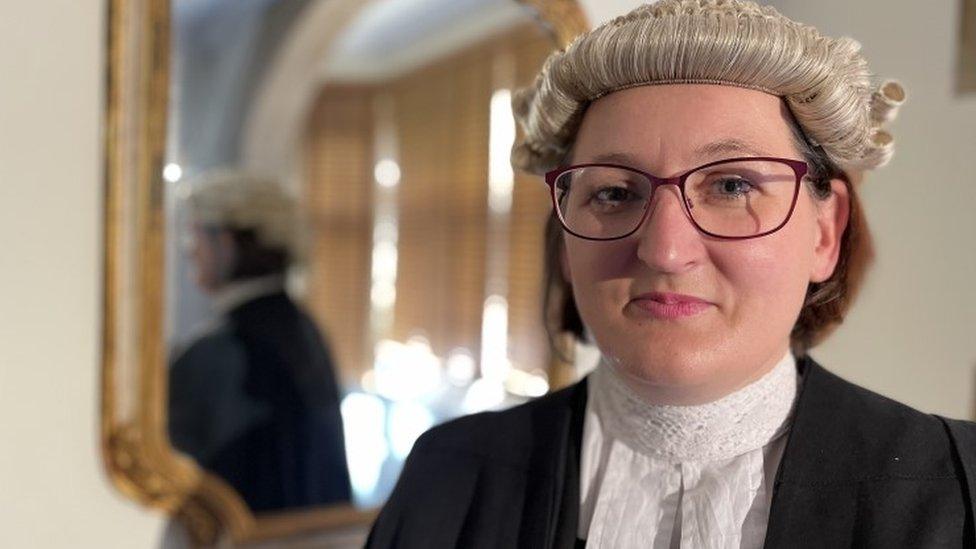
- Published16 December 2021
